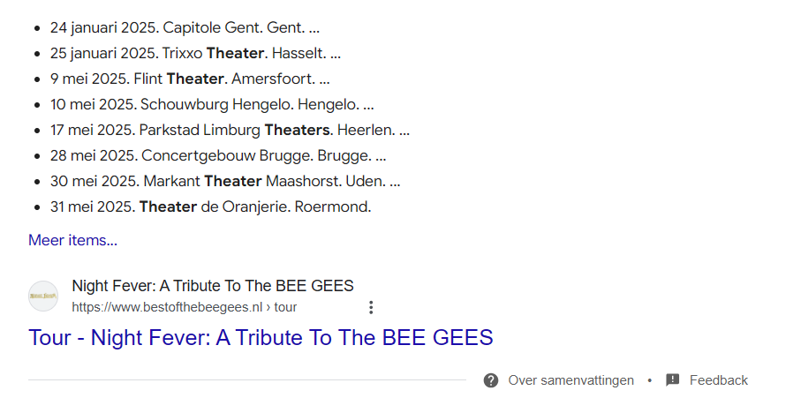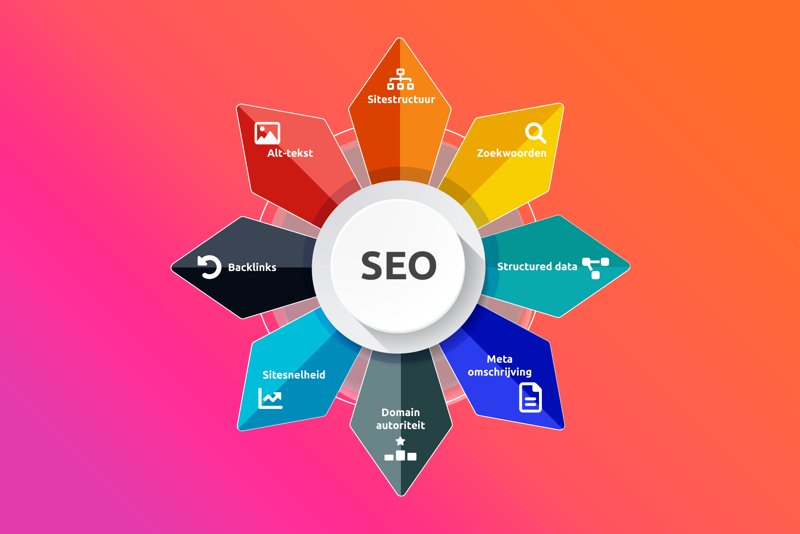
What is SEO and how do you use it?
Are you curious about the latest developments in UX design? Then you've come to the right place. We'll take you through five exciting trends that are going to shake up the user experience. This way you stay up to date!
SEO, or Search Engine Optimization, is the process of optimising a website to rank higher on search engines like Google. The goal of SEO is to attract more organic (unpaid) traffic to your website by making it easier to find and attractive to search engines and users.
SEO revolves around three main questions:
- Can a search engine find my website properly?
- Is my content relevant to what people are searching for?
- Is my website technical and user-friendly?

The most important parts of SEO
1. Technical SEO
This is the basis of a well-optimised website. Think of:
- Fast loading time: A slow website can scare off visitors and search engines. Tools like Google PageSpeed Insights help you optimise.
- Mobile-friendliness: Your website should work well on mobile devices.
- Secure connection: Provide an SSL certificate (https://) to inspire trust.
- Good structure: Use clear URLs, a sitemap, well-set meta tags and structured data.
2. On-page SEO
With on-page SEO, you optimise the content on your pages:
- Keyword research: Find out what terms your target audience is using and incorporate them naturally into titles, headlines, and text.
- Quality content: Write valuable and relevant content that meets the needs of your visitors.
- Internal links: Link to other pages on your site to guide users and search engines through your site.
- Optimize images: Use descriptive file names and alt texts to make visual content discoverable as well.
3. Off-Page SEO
This is about activities outside your own website:
- Link building: Collect quality backlinks from other websites. This strengthens the authority of your site.
- Social signals: Although indirect, social media can help increase your brand awareness and traffic.
4. Local SEO
For businesses with a physical location or a local audience, this is essential:
- Sign up for Google My Business.
- Add location-specific keywords to your content.
- Make sure your address and contact information is consistent across other websites.

Why SEO is important
A good SEO strategy ensures that your website is better found by the right people at the right time. It increases your online visibility, attracts more visitors and can ultimately contribute to higher conversions and more sales.
Conclusion: make sure your SEO is in order!
In 2025, SEO will continue to be an indispensable part of a successful online presence. By investing in technical optimisation, strong content, and a good linking strategy, you can ensure that your website scores well in the search results and is attractive to your target audience. This includes optimisation for new search engines such as Chat GPT: Generative Engine Optimization (GEO).
What can Basic Orange do for you?
With 28 years of experience in online communication and the latest AI technologies, Basic Orange helps your organisation optimise your website's SEO.

Wondering what you can do to be found better via search engines? Get in touch.
Our tips are also highly appreciated by:




